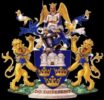
A famous quote attributed to Napoleon is “Never interrupt your enemy when he is making a mistake.”
.

The button above is an affiliate link. If you purchase a book through my Bookshop.org link, I may earn a small commission—at no extra cost to you! Your purchase helps support independent bookstores. Thank you!
REVIEW
Napoleon Unleashed is a meticulously researched exploration of one of history’s most enigmatic and influential figures: Napoleon Bonaparte. This book masterfully weaves together the complex tapestry of Napoleon’s life, from his humble Corsican origins to his meteoric rise as a revolutionary general, his reign as Emperor of the French, and his ultimate downfall at Waterloo. What sets this work apart is its ability to balance historical rigor with a narrative that is both engaging and accessible, making it a must-read for both history enthusiasts and casual readers alike.
The author delves deeply into Napoleon’s military genius, offering vivid accounts of his most famous campaigns, including the Italian and Egyptian expeditions, the Battle of Austerlitz, and the ill-fated invasion of Russia. These sections are not merely dry recitations of tactics and outcomes; they are brought to life with rich detail, showcasing Napoleon’s unparalleled ability to inspire his troops, outmaneuver his enemies, and adapt to the chaos of the battlefield. The book also highlights the broader impact of his military innovations, which laid the groundwork for modern warfare.
However, Napoleon Unleashed is more than just a chronicle of battles. It provides a nuanced portrait of Napoleon as a leader, reformer, and visionary. The book examines his enduring legacy in shaping modern Europe, from the Napoleonic Code—which influenced legal systems worldwide—to his administrative reforms that centralized governance and promoted meritocracy. At the same time, it does not shy away from his flaws, including his authoritarian tendencies, his relentless ambition, and the devastating human cost of his wars.
One of the book’s greatest strengths is its exploration of Napoleon’s leadership style and its relevance to modern leadership principles. The author draws parallels between Napoleon’s ability to inspire loyalty, his strategic foresight, and his relentless pursuit of excellence, offering valuable insights for contemporary leaders in any field. This thematic thread adds a layer of depth to the narrative, making it not just a history book but also a study of leadership in times of upheaval and transformation.
The prose is elegant and evocative, transporting readers to the battlefields, palaces, and salons of Napoleonic Europe. The author’s passion for the subject is evident on every page, and the inclusion of primary sources, such as letters and firsthand accounts, adds authenticity and immediacy to the story.
In conclusion, Napoleon Unleashed is a triumph of historical storytelling. It offers a comprehensive and balanced portrait of a man who was both a product of his time and a force that reshaped the world. Whether you are a seasoned historian or a newcomer to the subject, this book will leave you with a deeper understanding of Napoleon’s enduring impact on Europe and the art of leadership. A compelling and thought-provoking read, it is a worthy addition to any library.
Parallels with Leaders Today
- Charismatic Leadership and Populist Appeal
Napoleon was a master of self-promotion and understood the power of connecting directly with the public. Napoleon’s rise was fueled by his ability to position himself as a man of the people, despite his eventual imperial ambitions. The political success of many of today’s leaders has been attributed to his populist rhetoric and ability to resonate with a specific base of supporters who felt alienated by the political establishment. - Disruption of the Status Quo
Napoleon emerged during a time of upheaval (the French Revolution) and positioned himself as a disruptor of the old aristocratic order. Many of today’s leaders too, campaigned as an outsider who would “drain the swamp” and challenge the political elite. They capitalized on widespread dissatisfaction with existing systems to propel themselves to power. - Authoritarian Tendencies
Napoleon’s consolidation of power as Emperor and his willingness to bypass democratic processes have drawn comparisons to the leadership style of many of today’s leaders, particularly the tendency to centralize authority and challenge institutional norms. These figures have been accused of undermining democratic principles in their pursuit of power. - Media Savvy and Self-Mythologizing
Napoleon was acutely aware of the importance of controlling his image, using propaganda and art to craft a larger-than-life persona. The use of social media and leaders’ ability to dominate news cycles reflect a similar understanding of the power of perception and narrative in shaping public opinion.
Themes of Leadership and Ambition
The book’s broader themes—such as the tension between ambition and morality, the dangers of unchecked power, and the complexities of leadership—resonate across time and can be applied to many modern political figures. Napoleon’s story serves as a cautionary tale about the seductive nature of power and the fine line between visionary leadership and authoritarianism.
In conclusion, while Napoleon Unleashed does not explicitly draw comparisons to modern politicians, its exploration of Napoleon’s life and legacy offers fertile ground for readers to reflect on the parallels with contemporary leaders. Whether it’s Trump’s populism, Putin’s strategic ambitions, or the charisma of other political figures, Napoleon’s story remains a timeless study of power, leadership, and the human condition.
